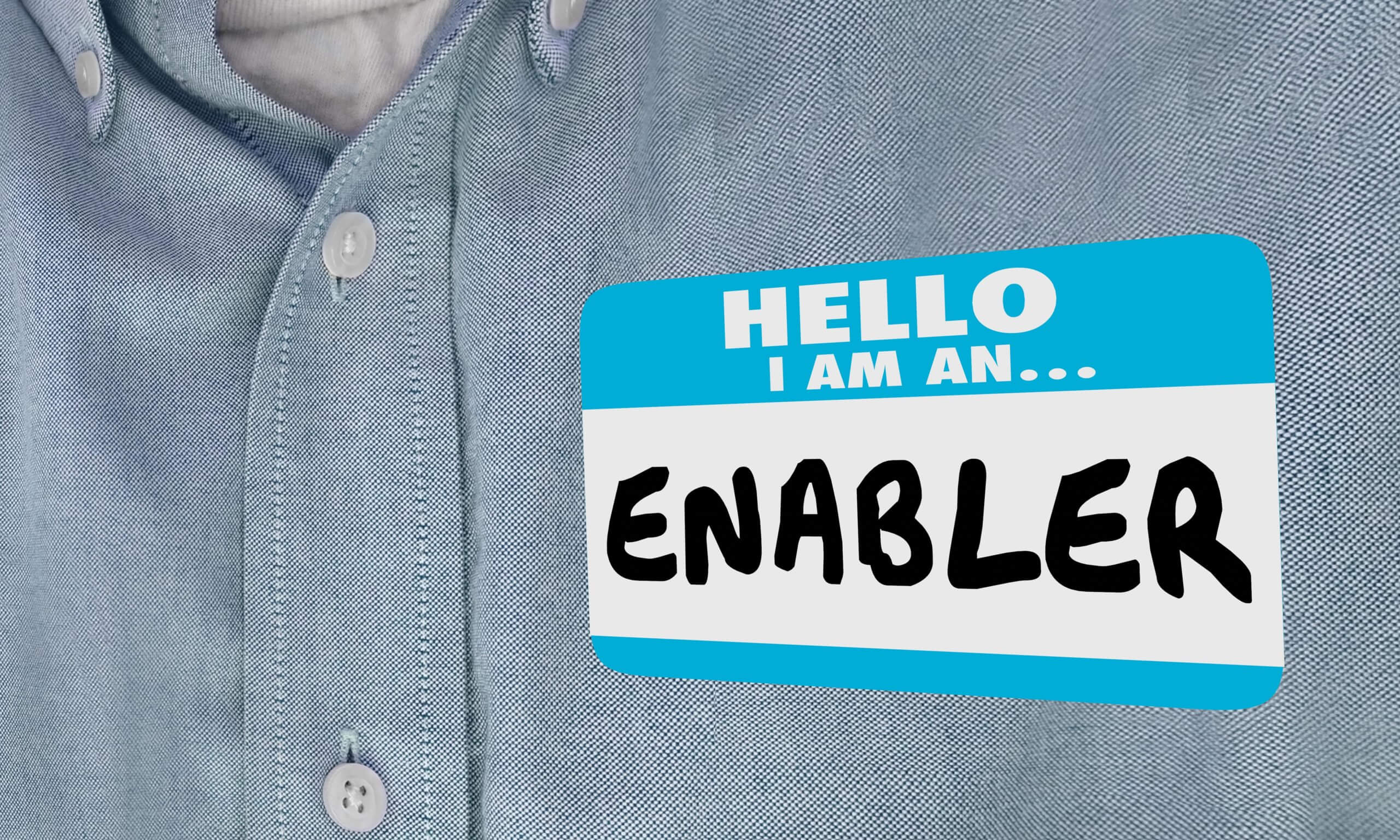If you have a family member or friend who is addicted to drugs and alcohol, you might be wondering if your actions are helpful or harmful. You might ask yourself how you can stop enabling addiction when you continue to see your loved one struggling. Helping a loved one get and stay sober can be challenging, especially if you live with a family member addicted to drugs or alcohol. Understanding the differences between helpful and enabling behaviors is critical in supporting your loved one throughout recovery.
What Is Enabling?
Enabling is a term used to describe behaviors and actions that create conditions for a loved one to fall back to unhealthy behaviors. You might be looking out for your loved ones and protecting them from further harm. Most of the time, enabling behaviors come from a place of love, which is why it can be difficult to stop.
Generally speaking, when you enable a person with an addiction, you are doing things for them that they could do for themselves if they weren’t drinking or using drugs. You might take on more than your share of household responsibilities because they are too drunk or high to contribute to the home. You might also make excuses for them or cover for their behaviors.
Any type of behavior that you do that prevents your loved one from coming to terms with the negative consequences of their addiction might be considered enabling. Of course, in some instances, you might be doing things to save their lives or reduce harm as they gradually accept recovery. For example, if your loved one calls you for a ride because they are too drunk to drive, you are helping them and others stay safe. It is important to understand signs of enabling to know the difference.
Signs You Are Enabling Addiction
Some signs that you are enabling addiction can be apparent, while others are not. You could also be accustomed to a pattern of behavior that is difficult to break. When you notice the signs, you can start taking action to stop enabling addiction.
The following are common signs of enabling:
- Making excuses for your loved one:
Your loved one might have responsibilities and obligations that they fail to meet due to addiction. They could be too drunk or high to fulfill their work and home duties. They might also be hungover or tired from a late night of partying. When you find yourself making excuses that obscure the truth, you might be enabling addictive behaviors.
- Jumping in to rescue them from consequences after the fact:
If your loved one asks for help to prevent severe consequences, you aren’t enabling their addiction. Instead, you are keeping them safe and reducing harm for their behaviors. For example, picking up your loved one when they are too drunk to drive is not enabling. However, shielding them from legal consequences if they don’t ask for a ride could be enabling. Sometimes, to make positive changes in life, your loved one needs to feel the pain of their actions.
- Giving them money that supports their addiction:
When a person with an addiction asks for money, remember how expensive drugs and alcohol can be. Even if they need money for rent or a car payment, ask yourself if they would need it if they didn’t spend money on drugs and alcohol. In addition, if they cannot hold down a job because they refuse recovery, they might ask for money when they could be making money on their own.
- Drinking or using drugs with your loved one:
While this enabling behavior might seem obvious, some loved ones don’t understand the struggle of addiction. You might think that using or drinking in your presence is safer than going out. You might also feel that this could be a way to build a relationship, which could help them in recovery. Instead, it is best to establish firm boundaries with those addicted.
The term “enabling” generally has negative connotations, making loved ones feel guilty or ashamed. Remember that you are acting out of love in most instances and genuinely trying to help. However, you might need to re-evaluate how you are helping your loved one. When you stop enabling addiction, you are looking for better ways to help.
The Best Ways to Stop Enabling Addiction
You can stop enabling addiction by setting boundaries and clear expectations for your loved one. Lectures, shouting, ultimatums, and threats aren’t the best way to stop a person who is addicted. Instead, you want to allow them space to understand and live with the consequences of their addiction while providing options to get better.
You can do some of the following to stop enabling addiction:
- Go to family groups and meetings to find support for yourself, such as Al-Anon and Alateen
- Set clear expectations for behaviors and responsibilities with natural consequences
- Explain your reasoning behind your new boundaries and expectations
- Learn more about addiction by researching online or speaking to health care professionals
- Explore treatment options to find a program that could help your loved one combat their addiction
Addiction Treatment in Denver
If your loved one struggles with an addiction to drugs or alcohol, you might need to help them find treatment. Support from family members and loved ones can help those in recovery get and stay sober. Continuum Recovery of Colorado offers outpatient drug and alcohol rehab services to help your loved one reclaim their life. Call or visit our admissions page today for more.



